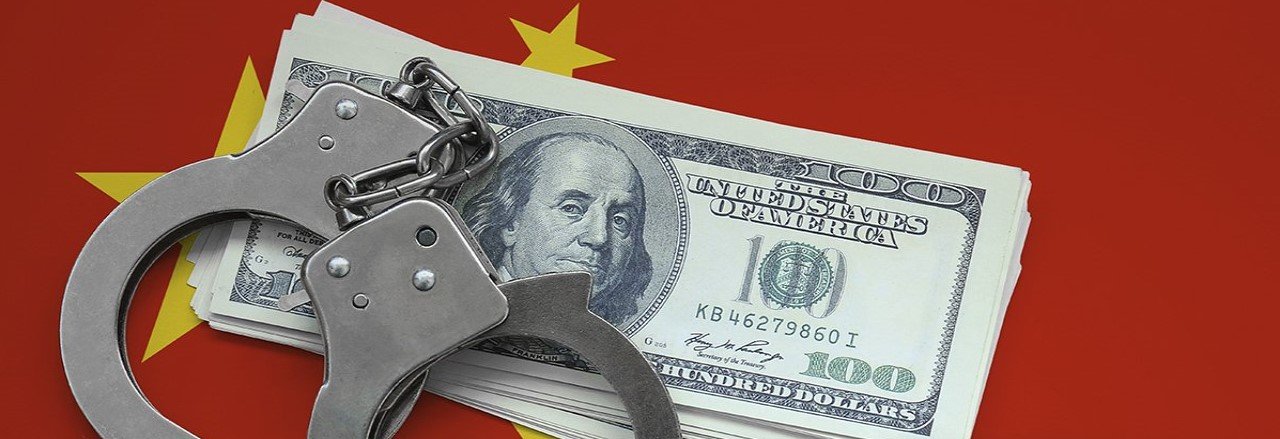

Jan
Quite a few analysts have voiced concerns that China’s economy is essentially a Ponzi scheme which needs perpetual growth to sustain itself. From the (in)famous South China Morning Post op-ed of Jake Van Der Camp to a wide range of criticism by Kyle Bass and other financial media opinion formers, it has become clear that this discussion is taken very seriously, especially by Western analysts.
So, is China’s economy essentially a Ponzi scheme?
And if so… what about everyone else, have other nations been on their best behavior in this respect?
Right off the bat, it is important to make it clear that calling a country’s economy a Ponzi scheme is a bit of a stretch, since Ponzi schemes usually describe activities on a more granular level, primarily individuals/companies that take money from “investors” and promise amazing returns through their business, yet don’t actually have a business. Instead, they simply use money from new(er) investors to pay existing ones, resulting in a game of musical chairs where the last people to get involved end up footing the bill.
As can be seen, Ponzi schemes tend to be simple at their core: you take money from Paul to pay Peter and pocket some of Paul’s money while you’re at it for your trouble. By comparison, a country’s economy is multiple orders of magnitude more complex, with far more moving parts involved: the various economic actors, the geopolitical landscape, endogenous/exogenous unknowns and so on. For the sake of this article, however, we can assume a country’s economy can be considered a Ponzi scheme if it is unsustainable and relies on ever-increasing inflows to remain functional.
Based on that definition, is China’s economy a Ponzi scheme?
To be blunt, yes.
However, in the spirit of painting the full picture rather than just the fragment which includes China, it is worth pointing out that in this author’s opinion, while China can indeed be considered an economic Ponzi scheme, it is most certainly not less so a Ponzi scheme than other countries. In other words, it wouldn’t be the least bit a stretch to consider the global financial system as a whole the largest Ponzi scheme in the history of mankind.
In his op-ed, Jake Van Der Camp provided an example surrounding steel in China: more and more steel is required so that additional steel mills can be built, steel mills which facilitate the construction of anything from shipyards and ports to railways and bridges in terms of infrastructure. That infrastructure then encourages more means of transportation to be built, means of transportation which take even more crude oil than before to various facilities. The result, as you might be suspecting, can only be an incestuous vicious circle, with China essentially manufacturing demand.
Is that an accurate depiction of reality?
More or less.
But, again, the mistake here lies not in identifying the Ponzi-like characteristics of the Chinese economy but in failing to do so with other nations.
What about Japan, with its tremendous debt to GDP level? Or the United States, which went from being the world’s main creditor nation after World War II to being the world’s number one debtor nation? Even in the ultra-low interest rate environment of the present, interest payments are significant. What would happen if for one reason or another, a reversion to the mean would occur and interest rates would shoot up spectacularly?
Needless to say, the “system” as we know it globally rather than just regionally-speaking would cease to function. For this reason, the authorities have all of the reasons in the world from a game theory perspective to chase after continuous debt-based growth because if that were to stop, the system wouldn’t be able to handle it. Let’s not even talk about the “what is left behind?” dimension, with deteriorating infrastructure representing a major cause for concern when it comes to nations such as the United States, anything from roads and bridges to the US power grid.
This ultimately leads us to the final question: what happens when these Ponzi schemes collapse?
Or, to add more nuance to the mix as well as be more specific: is China more or less likely to land on its feet than Western nations?
In our view, it is easy to be quasi-certain that such scenarios would end poorly for all parties involved. When it comes to China compared to the West, our best educated guess is that China has quite a few things going for it which might tilt the scale in its favor mid to long-term speaking: a 1.4 billion population whose economic potential barely started being unleashed (as illustrated by China’s GDP per capita, 6.5 times lower than let’s say that of the United States), a solid “tangible” dimension (infrastructure-related, for example) compared to the more “paper” wealth-oriented West, the historical cyclicity argument (history may not repeat itself, but it oftentimes rhymes) and so on.
Is the Chinese economy a Ponzi scheme? Probably, but so is the economy of… well, pretty much every other nation. As such, we believe that even or especially in the most adverse of scenarios, those who are brave enough to be on the offense with respect to Chinese assets when everyone is playing defense stand a more than realistic chance at being asymmetrically rewarded in the long run.
